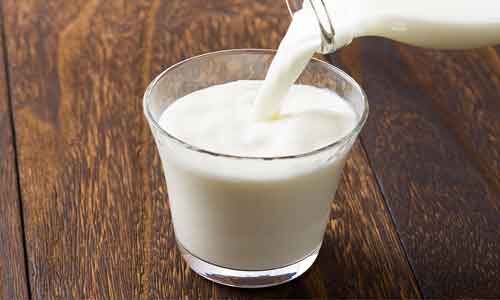- Home
- Medical news & Guidelines
- Anesthesiology
- Cardiology and CTVS
- Critical Care
- Dentistry
- Dermatology
- Diabetes and Endocrinology
- ENT
- Gastroenterology
- Medicine
- Nephrology
- Neurology
- Obstretics-Gynaecology
- Oncology
- Ophthalmology
- Orthopaedics
- Pediatrics-Neonatology
- Psychiatry
- Pulmonology
- Radiology
- Surgery
- Urology
- Laboratory Medicine
- Diet
- Nursing
- Paramedical
- Physiotherapy
- Health news
- Fact Check
- Bone Health Fact Check
- Brain Health Fact Check
- Cancer Related Fact Check
- Child Care Fact Check
- Dental and oral health fact check
- Diabetes and metabolic health fact check
- Diet and Nutrition Fact Check
- Eye and ENT Care Fact Check
- Fitness fact check
- Gut health fact check
- Heart health fact check
- Kidney health fact check
- Medical education fact check
- Men's health fact check
- Respiratory fact check
- Skin and hair care fact check
- Vaccine and Immunization fact check
- Women's health fact check
- AYUSH
- State News
- Andaman and Nicobar Islands
- Andhra Pradesh
- Arunachal Pradesh
- Assam
- Bihar
- Chandigarh
- Chattisgarh
- Dadra and Nagar Haveli
- Daman and Diu
- Delhi
- Goa
- Gujarat
- Haryana
- Himachal Pradesh
- Jammu & Kashmir
- Jharkhand
- Karnataka
- Kerala
- Ladakh
- Lakshadweep
- Madhya Pradesh
- Maharashtra
- Manipur
- Meghalaya
- Mizoram
- Nagaland
- Odisha
- Puducherry
- Punjab
- Rajasthan
- Sikkim
- Tamil Nadu
- Telangana
- Tripura
- Uttar Pradesh
- Uttrakhand
- West Bengal
- Medical Education
- Industry
Full fat dairy every day may lower blood sugar and BP in metabolic syndrome

There has been controversy regarding dairy consumption especially full fat dairy in patients of diabetes, heart disease and metabolic syndrome.
Researchers have found in the Prospective Urban Rural Epidemiology (PURE) study that consumption of at least two daily servings of dairy may lower blood sugar and blood pressure in metabolic syndrome.
A large international study published online in BMJ Open Diabetes Research & Care links full fat dairy products use to lower risks of diabetes and high blood pressure, as well as the cluster of factors that heighten cardiovascular disease risk.
Previously published research has suggested that higher dairy intake is associated with a lower risk of diabetes, high blood pressure, and metabolic syndrome. But these studies have tended to focus on North America and Europe to the exclusion of other regions of the world.
To see whether these associations might also be found in a broader range of countries, the researchers drew on people taking part in the Prospective Urban Rural Epidemiology (PURE) study.
Participants were all aged between 35 and 70 and came from 21 countries: Argentina; Bangladesh; Brazil; Canada; Chile; China; Colombia; India; Iran; Malaysia; Palestine; Pakistan; Philippines, Poland; South Africa; Saudi Arabia; Sweden; Tanzania; Turkey; United Arab Emirates; and Zimbabwe.
Usual dietary intake over the previous 12 months was assessed by means of Food Frequency Questionnaires. Dairy products included milk, yogurt, yogurt drinks, cheese and dishes prepared with dairy products, and were classified as full or low fat (1-2%).
Butter and cream were assessed separately as these are not commonly eaten in some of the countries studied.
Information on personal medical history, use of prescription medicines, educational attainment, smoking and measurements of weight, height, waist circumference, blood pressure and fasting blood glucose were also collected.
Data on all five components of the metabolic syndrome were available for nearly 113,000 people: blood pressure above 130/85 mm Hg; waist circumference above 80 cm; low levels of (beneficial) high density cholesterol (less than 1-1.3 mmol/l); blood fats (triglycerides) of more than 1.7 mmol/dl; and fasting blood glucose of 5.5 mmol/l or more.
Average daily total dairy consumption was 179 g, with full fat accounting for around double the amount of low fat: 124.5+ vs 65 g.
Some 46, 667 people had metabolic syndrome--defined as having at least 3 of the 5 components.
Total dairy and full fat dairy, but not low fat dairy, were associated with a lower prevalence of most components of metabolic syndrome, with the size of the association greatest in those countries with normally low dairy intakes.
At least 2 servings a day of total dairy were associated with a 24% lower risk of metabolic syndrome, rising to 28% for full fat dairy alone, compared with no daily dairy intake.
The health of nearly 190,000 participants was tracked for an average of nine years, during which time 13,640 people developed high blood pressure and 5351 developed diabetes.
At least 2 servings a day of total dairy was associated with an 11-12% lower risk of both conditions, rising to a 13-14% lower risk for 3 daily servings. The associations were stronger for full fat than they were for low fat dairy.
This is an observational study, and as such can't establish cause. Food frequency questionnaires are also subject to recall, and changes in metabolic syndrome weren't measured over time, all of which may have influenced the findings.
Nevertheless, the researchers suggest: "If our findings are confirmed in sufficiently large and long term trials, then increasing dairy consumption may represent a feasible and low cost approach to reducing [metabolic syndrome], hypertension, diabetes, and ultimately cardiovascular disease events worldwide."
For further reference log on to:
https://drc.bmj.com/lookup/doi/10.1136/bmjdrc-2019-000826
Dr Kamal Kant Kohli-MBBS, DTCD- a chest specialist with more than 30 years of practice and a flair for writing clinical articles, Dr Kamal Kant Kohli joined Medical Dialogues as a Chief Editor of Medical News. Besides writing articles, as an editor, he proofreads and verifies all the medical content published on Medical Dialogues including those coming from journals, studies,medical conferences,guidelines etc. Email: drkohli@medicaldialogues.in. Contact no. 011-43720751


